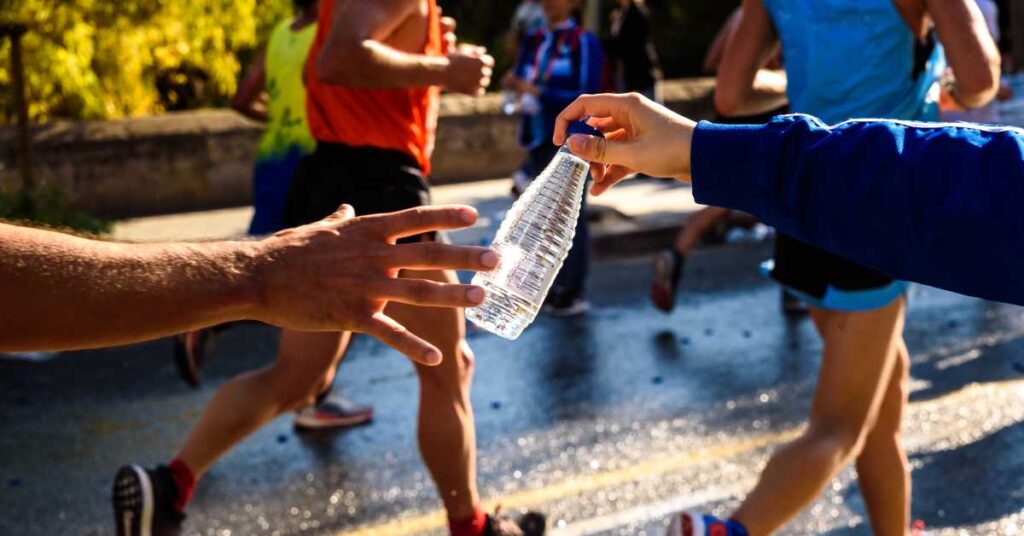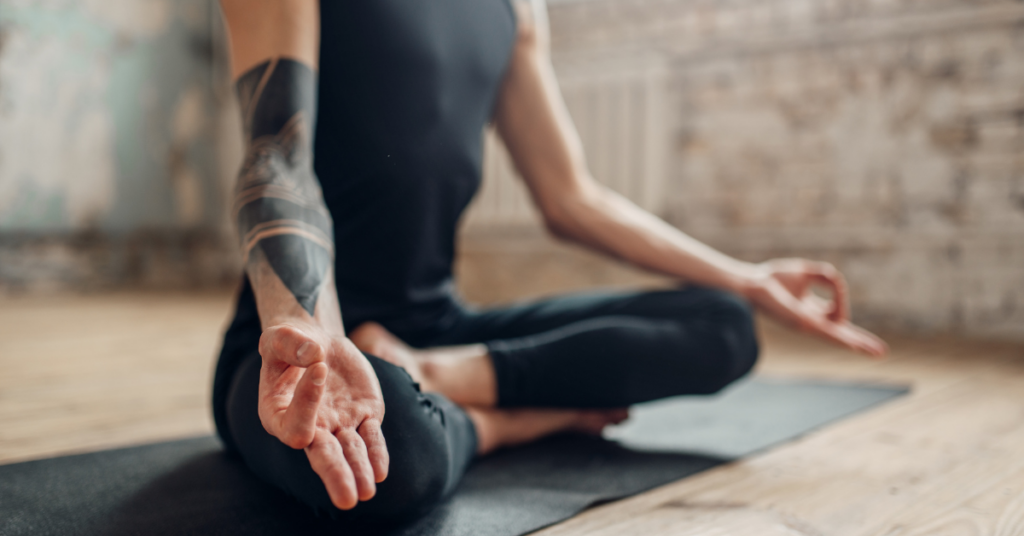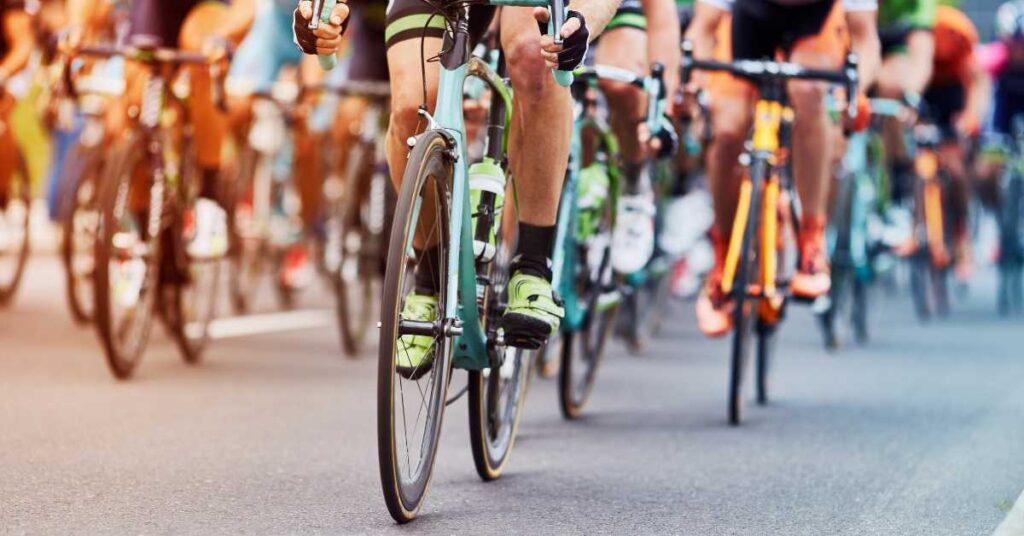Introduction
When it comes to optimizing athletic performance, hydration plays a vital role. Ensuring proper hydration before your workout is crucial for preparing your body for the physical demands ahead.
In this article, we will explore the importance of pre-workout hydration for athletes and provide strategies to help you hydrate effectively before hitting the gym or engaging in any physical activity. So grab your water bottle and let’s dive in!
Understanding Pre-Workout Hydration
The Role of Water in the Body
Water is essential for the proper functioning of our bodies, and its importance cannot be overstated. It is involved in numerous physiological processes, including regulating body temperature, lubricating joints, transporting nutrients, and eliminating waste products.
As an athlete, staying properly hydrated is crucial for maintaining optimal performance and supporting overall health.
The Impact of Dehydration on Exercise
Dehydration can have a significant impact on your exercise performance. Even mild dehydration, as little as 2% loss of body weight, can lead to decreased endurance, impaired cognitive function, and increased perception of effort.
Dehydration can also affect your cardiovascular system, leading to a higher heart rate and reduced blood volume, which can negatively impact your ability to sustain intense physical activity.
The Benefits of Pre-Workout Hydration
Enhanced Physical Performance
Proper pre-workout hydration can significantly enhance your physical performance. When you’re well-hydrated, your muscles are better able to contract and generate power, improving your strength and endurance.
Hydration also aids in the delivery of nutrients to your muscles and helps remove waste products, allowing for more efficient muscle function during exercise.
Improved Thermoregulation
Hydration is essential for regulating body temperature, especially during intense workouts. When you’re adequately hydrated, your body can effectively dissipate heat through sweating, preventing overheating and reducing the risk of heat-related illnesses.
Pre-workout hydration helps optimize thermoregulation, keeping you comfortable and safe during your training sessions.
Hydration Strategies for Before Your Workout
Hydration Timing: How Early Should You Start?
To ensure optimal hydration, it’s important to start hydrating well before your workout. Aim to drink fluids at least 2 to 3 hours before exercise to allow your body enough time to absorb and distribute the water properly.
This early hydration gives your body the necessary fluids to support performance and helps prevent the onset of dehydration during your workout.
Recommended Fluid Intake
The recommended fluid intake before a workout varies depending on factors such as body weight, exercise intensity, and environmental conditions. As a general guideline, aim to consume 16 to 20 ounces (about 500 to 600 milliliters) of water 2 to 3 hours before your workout.
If you’re engaging in intense or prolonged exercise, consider consuming additional fluids closer to your workout time to maintain hydration.
Factors Affecting Pre-Workout Hydration Needs
Individual Differences
Each individual has unique hydration needs based on factors such as body composition, sweat rate, and personal tolerance to dehydration.
Pay attention to your body’s cues and experiment to find the hydration routine that works best for you. Monitor your fluid intake and adjust accordingly based on how your body responds to different hydration strategies.
Exercise Intensity and Duration
The intensity and duration of your workout influence your hydration requirements. Longer and more intense exercises result in increased fluid losses through sweat, requiring a higher fluid intake to maintain hydration.
Tailor your hydration strategy based on the specific demands of your workout, ensuring you provide your body with the fluids it needs to perform at its best.
Environmental Conditions
Environmental factors such as temperature and humidity can affect your hydration needs. In hot and humid conditions, your body will sweat more, leading to increased fluid losses.
It’s crucial to consider these factors and adjust your fluid intake accordingly to account for the additional hydration demands imposed by the environment.
Signs of Inadequate Pre-Workout Hydration
Recognizing Dehydration Symptoms
It’s essential to be aware of the signs of inadequate hydration before your workout. Some common symptoms of dehydration include thirst, dry mouth, dark-colored urine, fatigue, dizziness, and muscle cramps.
If you experience any of these symptoms, it may indicate that you haven’t adequately hydrated before your exercise session. Monitoring your hydration status and addressing these symptoms promptly can help prevent further dehydration and optimize your performance.
Hydration Tips and Techniques
Drink Plenty of Water
The most straightforward and effective way to hydrate before your workout is to drink plenty of water. Make it a habit to have a water bottle with you throughout the day and sip on water regularly. This ensures that you’re adequately hydrated before you even begin your workout.
Consider Electrolyte-Replenishing Drinks
In addition to water, you may also consider consuming drinks that replenish electrolytes before your workout. Electrolytes, such as sodium, potassium, and magnesium, are lost through sweat and play a crucial role in maintaining fluid balance and supporting optimal muscle function.
Sports drinks or electrolyte-enhanced beverages can provide these essential minerals and help optimize your hydration levels.
Monitor Urine Color
A simple way to gauge your hydration status is to monitor the color of your urine. Ideally, your urine should be a pale yellow color, indicating proper hydration. If your urine is dark-colored, it may be a sign of dehydration. Use this visual cue as an indicator of your hydration status and adjust your fluid intake accordingly.
Conclusion
Pre-workout hydration is a vital component of athletic performance. By ensuring that you’re properly hydrated before your workout, you can enhance your physical performance, improve thermoregulation, and reduce the risk of dehydration-related complications.
Remember to start hydrating early, monitor your fluid intake, and consider individual factors such as exercise intensity, duration, and environmental conditions. With a well-hydrated body, you’ll be better prepared to push your limits and achieve your fitness goals.
Frequently Asked Questions (FAQs)
Q1: Can I drink too much water before a workout?
A1: While it’s important to hydrate adequately, excessive water intake immediately before a workout can lead to discomfort and a feeling of fullness. Aim to start hydrating at least 2 to 3 hours before exercise and consume fluids in moderation.
Q2: Are sports drinks better than water for pre-workout hydration?
A2: Both water and sports drinks can effectively hydrate your body before a workout. Water is the essential hydration source, while sports drinks can provide electrolytes to support hydration. Choose the option that best suits your individual needs and the specific demands of your exercise session.
Q3: Can I drink coffee before my workout?
A3: Moderate consumption of coffee before a workout is generally safe and can provide a boost of energy. However, be mindful of the potential diuretic effect of caffeine, which may increase fluid loss through urine. Ensure you stay adequately hydrated alongside your coffee intake.
Q4: What are some other sources of pre-workout hydration?
A4: In addition to water and sports drinks, you can hydrate before your workout by consuming hydrating foods such as fruits and vegetables with high water content. Snacking on watermelon, cucumber, or oranges can contribute to your overall hydration levels.
Q5: Can I drink alcohol before exercising?
A5: It’s advisable to avoid alcohol before a workout. Alcohol can have a dehydrating effect on the body, negatively impacting your hydration status and exercise performance. Opt for hydrating beverages like water or sports drinks instead.
Disclaimer: When it comes to sport nutrition, always seek professional guidance and advice from medical professionals, nutritionists and other relevant professionals who will be in a position to better address specific concerns or issues related to your individual situation. In no event shall we be liable for any direct, indirect, incidental, special, or consequential damages arising out of or in connection with your use of this website or the content provided herein.







